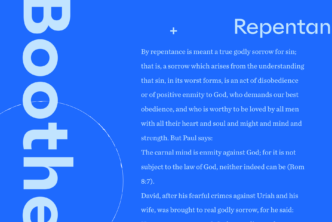Nearly 1600 years ago today, Augustine of Hippo passed out of this life and into eternity. Has any other thinker had such a profound influence on the course of Christian theology and philosophy?
On the indwelling of God
Confessions, Book I, Ch. 3:
Do heaven and earth encompass Thee, then, since Thou fillest them? Or dost Thou fill them and still have something left over, since they cannot contain Thee? And where dost Thou overflow when, having filled heaven and earth, something more remains of Thee? Or dost Thou have no need of a container, Thou who containest all things, since what things Thou fillest, Thou fillest by containing them? It is not the vessels filled with Thee which hold Thee in position, for, even were they to break, Thou wouldst not spill out. And when Thou dost flow out over us, Thou dost not fall to the earth; rather, Thou dost lift us up. Nor dost Thou scatter Thyself; rather, Thou dost gather us in.
Dost Thou fill all the things which Thou fillest with Thy entirety? Or, because all things cannot encompass Thee in Thy entirety, do they contain part of Thee? And do all things contain the same part at once? Or does each contain its separate part, the bigger things bigger parts, the smaller things smaller parts? Is one part of Thee bigger, then, another smaller? Or art Thou everywhere entire and does no thing contain Thee wholly?
Augustine of Hippo, Confessions (ed. R. J. Deferrari) (The Fathers of the Church; Washington, DC, 1953) XXI, 5–6.
On evil as a lack or deprivation
City of God, Book XII, Ch. 7:
No one, therefore, need seek for an efficient cause of an evil will. Since the ‘effect’ is, in fact, a deficiency, the cause should be called ‘deficient.’ The fault of an evil will begins when one falls from Supreme Being to some being which is less than absolute. Trying to discover causes of such deficiencies—causes which, as I have said, are not efficient but deficient—is like trying to see darkness or hear silence. True, we have some knowledge of both darkness and silence: of the former only by the eyes; of the latter only by the ears. Nevertheless, we have no sensation but only the privation of sensation.
So there is no point in anyone trying to learn from me what I know I do not know—unless, perhaps, he wants to know how not to know what, as he ought to know, no one can know. For, things we know, not by sensation, but by the absence of sensation, are known—if the word says or means anything—by some kind of ‘unknowing,’ so that they are both known and not known at the same time. For example, when the vision of the eye passes from sensation to sensation, it sees darkness only when it begins not to see. So, too, no other sense but the ear can perceive silence, yet silence can only be heard by not being heard.
So, too, it is only the vision of the mind that discerns the species intellegibilis when it understands intelligible realities. But, when the realities are no longer intelligible, the mind, too, knows by ‘unknowing.’ For ‘who can understand sins?’
Augustine of Hippo, The City of God, Books VIII–XVI (ed. H. Dressler) (The Fathers of the Church; Washington, DC, 1952) XIV, 257–258.
On the goodness of creation
Faith, Hope, and Charity, Ch. 3:
When, then, it is asked what a man should believe in regard to religion, there is no need to pry into the nature of things, as was done by those whom the Greeks call physici. And we need not have any fear lest a Christian be ignorant of the force and number of the elements, of the motion, order and eclipses of the heavenly bodies, of the shape of the heavens, of the kinds and natures of animals, plants, stones, fountains, rivers, mountains, of the intervals of places and times, of the signs of imminent storms, and a thousand other such things which they either discovered or believe they have discovered.
For even they, with such superior genius, burning with zeal, abounding in leisure, investigating some things with the aid of human conjecture, searching into others through the experience of history, even they did not find out all things, and even their vaunted discoveries involve more of opinion than of knowledge.
For a Christian it is enough to believe that the cause of created things, whether on earth or in heaven, whether visible or invisible, is nothing other than the goodness of the Creator, who is God, one and true, and that there is nothing which either He Himself is not or which does not stem from Him—from Him, the Trinity, the Father, the Son begotten of the Father, and the Holy Spirit proceeding from the same Father, but being the one and the same Spirit of Father and Son.
(10) By this Trinity supremely, equally, and unchangeably good, all things were created; yet these are not supremely, equally, and unchangeably good, but good they are, even taken separately, while together they are very good, because it is of all things that the wonderful beauty of the whole consists.
(11) In this whole even that which is called evil, well-regulated and confined to its own place, serves to give higher commendation to the good, making it, in comparison with the evil, more pleasing and worthy of praise. For not even the Almighty God, who, as even the heathen acknowledge, ‘has supreme power over all things,’ being Himself supremely good, would ever permit any evil to be in His works, were not His power and goodness such that even out of evil He can do good.
Now what is the so-called evil but a privation of the good? In the bodies of animals affliction with diseases and wounds is nothing other than the privation of health. For, when a cure is worked, it does not mean that those evils which were present, that is, the diseases and the wounds, recede thence and are elsewhere; they simply are not. For a wound or a disease is not a substance, but a vice of the fleshly substance; the substance, surely something good, is flesh itself, its accidents being the aforementioned evils, that is, privations of that good which is called health.
In like manner evils in the soul are privations of natural good. When they are cured, they are not transferred to another place; since they can have no place in the healthy soul, they can be nowhere.
Augustine of Hippo, Christian Instruction; Admonition and Grace; The Christian Combat; Faith, Hope and Charity (ed. R. J. Deferrari) (The Fathers of the Church; Washington, DC, Second Edition, 1950) II, 375–377.





